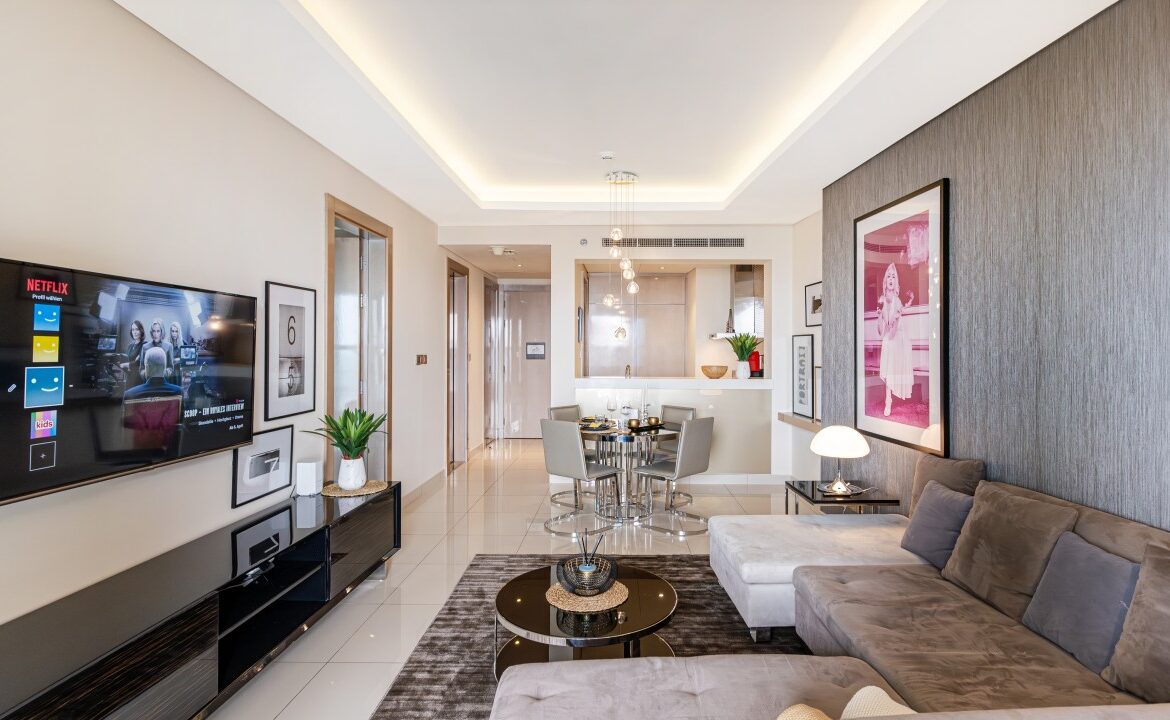The Hidden Value of Dubai’s Holiday Homes: Unveiling Unique Opportunities for Modern Landlords
Dubai, renowned for its towering skyscrapers, vibrant culture, and luxurious lifestyle, has established itself as a top destination for tourists and business travelers alike. The city’s burgeoning real estate market, especially in the holiday home sector, continues to attract investors looking to capitalize on Dubai’s ever-growing popularity. While much has been written about the value of Dubai holiday homes in regard to financial benefits and market dynamics, this article delves into the lesser-known, yet increasingly important value of Dubai holiday homes that modern landlords should consider. From the role of technology in enhancing guest experiences to the impact of sustainability practices, this article offers a fresh perspective on how landlords can maximize their investment in Dubai’s holiday home market.
1. The Technology Advantage: Smart Homes for Smart Returns
One of the most significant shifts in the holiday home industry is the integration of smart technology. Dubai, being at the forefront of technological advancements, offers landlords the opportunity to leverage smart home features to attract tech-savvy travelers. Smart locks, automated lighting, climate control systems, and voice-activated assistants are no longer luxuries but expectations for modern holiday rentals.
For landlords, investing in these technologies can lead to higher occupancy rates and premium pricing. Guests are willing to pay more for convenience and a seamless, tech-enabled experience. Additionally, smart home technology allows landlords to monitor and manage their properties remotely, reducing operational costs and enhancing security.
2. Eco-Friendly Stays: The Rising Demand for Sustainable Holiday Homes
Sustainability is no longer just a buzzword; it has become a significant factor in travelers’ decision-making processes. With Dubai’s commitment to becoming one of the world’s most sustainable cities by 2050, there is a growing demand for eco-friendly holiday homes. Landlords who incorporate sustainable practices, such as energy-efficient appliances, water-saving fixtures, and waste management systems, are likely to attract a new demographic of environmentally-conscious travelers.
Moreover, promoting a property as eco-friendly can differentiate it from the competition, allowing landlords to tap into a niche market. Offering incentives like carbon offset programs or partnerships with local environmental initiatives can further enhance the property’s appeal.
3. The Power of Personalization: Tailoring Experiences for Every Guest
In an era where experiences are valued more than possessions, personalization has become a key trend in the hospitality industry. Holiday home landlords in Dubai can capitalize on this by offering customized experiences that cater to the unique preferences of their guests. From personalized welcome packages to curated local tours, the possibilities are endless.
By using data analytics and guest feedback, landlords can gain insights into their guests’ preferences and tailor their offerings accordingly. This not only enhances the guest experience but also increases the likelihood of repeat bookings and positive reviews.

4. Capitalizing on Dubai’s Event Calendar: Short-Term Rentals with Long-Term Gains
Dubai’s packed event calendar, featuring global exhibitions, sports events, and cultural festivals, presents a lucrative opportunity for holiday home landlords. Properties located near event venues can command higher rates during peak seasons. However, to truly capitalize on these opportunities, landlords need to stay ahead of the curve.
Creating flexible pricing strategies that adjust according to demand and promoting properties specifically for event attendees can significantly boost profitability. Additionally, partnering with event organizers to offer exclusive accommodation packages can attract a steady stream of guests throughout the year.
5. The New Wave of Co-Living Spaces: A Trend Worth Watching
While co-living spaces have gained popularity in major cities worldwide, Dubai’s holiday home market is beginning to see the emergence of this trend. Co-living spaces, which offer shared amenities and communal living areas, appeal to millennials and digital nomads seeking affordable, flexible accommodation.
Landlords who invest in or convert their properties into co-living spaces can benefit from higher occupancy rates and the ability to cater to a diverse range of guests. This model also encourages longer stays, reducing the turnover rate and associated costs.
6. Navigating Legal Landscapes: Staying Ahead of Regulations
As the holiday home market in Dubai continues to grow, so does the need for landlords to stay informed about the evolving regulatory landscape. The Dubai Tourism and Commerce Marketing (DTCM) has implemented stringent guidelines to ensure the quality and safety of holiday rentals. Landlords must obtain the necessary permits, comply with health and safety standards, and adhere to pricing regulations.
Staying compliant not only protects landlords from legal repercussions but also builds trust with guests. Highlighting compliance in marketing materials can serve as a reassurance to potential guests, further enhancing the property’s appeal.
The value of Dubai holiday homes and its potential is ripe with opportunities for landlords who are willing to innovate and adapt to the changing landscape. By embracing technology, sustainability, personalization, and new market trends, landlords can unlock the hidden value of Dubai holiday homes and achieve long-term success in this dynamic market. As Dubai continues to attract a diverse range of visitors, the potential for growth in the holiday home sector remains limitless.
Book your holiday homes in Dubai from Savis Vacation Homes or Airbnb


